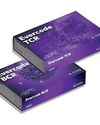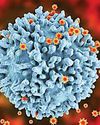In the recently concluded 10th World Stroke Congress 2016 at Hyderabad, jointly organised by World Stroke Organisation (WSO) and Indian Stroke Association & Medtronic Inc., medical practitioners announced the launch of Stroke Roadmap in India. Currently, stroke incidence in India is much higher than western industrialised countries. With a population of 1.2 billion today and growing, India finds itself staring at a stroke epidemic.
The officials claim that the newly designed roadmap is intended to guide local healthcare officials and stroke care clinical groups in establishing stroke systems of care and will provide the framework for the implementation, monitoring and evaluation of stroke services nationally. In an exclusive interaction with BioSpectrum, Dr Jeyaraj Durai Pandian, Head of Neurology, Christian Medical College and Hospital, Ludhiana elaborates on the subject, and how the Stroke Roadmap might prove a perfect shield to dodge the disease.

Head of Neurology, Christian Medical College and Hospital, ludhiana
Q: Why is the stroke rate climbing in India, specifically among the young generations?
A: 1.8 million Indians out of a population of 1.2 billion suffer from stroke every year. Common risk factors such as hypertension, diabetes, smoking, and dyslipidaemia are prevalent and insufficiently controlled due to low awareness levels of the disease. One of the primary factors of early stroke is the so-called ‘cafeteria diet’ which is rich in high-calorie, high-sugar and high-salt foods. Smoking and uncontrolled alcohol consumption also serve to exacerbate the situation.
The rising incidence of stroke in India indicates the inadequate levels of awareness and education about the disease. A stroke can strike anyone, at any time. Stroke rates among young and middle-aged people nationwide are increasing, almost 15 to 20 percent of strokes occur in people in their 30s and 40s.
Q: What is the general perception of the denizens of the country regarding stroke?
A: Surveys conducted over the last ten years reveal that about one-fourth of urban and one-third of rural respondents had no knowledge of any warning symptoms of stroke. Only 55 percent of the urban population were aware of one warning symptom of stroke; 16.2 percent were aware of two symptoms; and only 6.2 per cent could identify three symptoms.
この記事は Bio Spectrum の December 2016 版に掲載されています。
7 日間の Magzter GOLD 無料トライアルを開始して、何千もの厳選されたプレミアム ストーリー、9,000 以上の雑誌や新聞にアクセスしてください。
すでに購読者です ? サインイン
この記事は Bio Spectrum の December 2016 版に掲載されています。
7 日間の Magzter GOLD 無料トライアルを開始して、何千もの厳選されたプレミアム ストーリー、9,000 以上の雑誌や新聞にアクセスしてください。
すでに購読者です? サインイン

Sartorius Stedim Biotech opens new centre for bioprocess innovation in US
Sartorius Stedim Biotech, a leading partner of the biopharmaceutical industry, has opened its new centre for Bioprocess Innovation in Marlborough, Massachusetts in the US.

Agilent introduces innovative Mito-rOCR assay kit for mitochondrial research
Agilent Technologies Inc. has announced the new MitorOCR Assay Kit.

Qiagen launches AI-extension of Ingenuity Pathway Analysis for automatic interpretation of biological data
Qiagen has announced the launch of Ingenuity Pathway Analysis (IPA) Interpret, a new feature designed to simplify and accelerate the interpretation of complex biological data.

Parse Biosciences announces expansion of Evercode BCR product line
Parse Biosciences, a leader in scalable single cell sequencing solutions, has announced the expansion of its Evercode BCR product line to enable applications in mice.

New technology for unambiguous detection of HIV genome using tailored fluorogenic tests
A team of scientists at Jawaharlal Nehru Centre for Advanced Scientific Research (JNCASR), has developed a novel diagnostic technology known as the GQ Topology-Targeted Reliable Conformational Polymorphism (GQ-RCP) platform.

Gene mutation likely cause for developing autism in early childhood: RGCB study
Autism, a developmental disorder that causes functional abnormalities in brain development, is caused by a combination of environmental and genetic factors with its symptoms manifesting in childhood as early as the age of two years.

IIIT-Delhi unveils AI platform for discovering molecules that promote healthy ageing
A team of researchers from Indraprastha Institute of Information Technology Delhi (IIIT-Delhi) has developed AgeXtend, a groundbreaking artificial intelligence (AI)-based platform that is set to transform the search for molecules promoting healthy ageing.

RSSDI study lays focus on Yoga and Diabetes Prevention
Dr Jitendra Singh, Union Minister of State (Independent Charge) for Science and Technology, recently released the landmark study by Research Society for Study of Diabetes in India (RSSDI) on 'Yoga and Diabetes Prevention'.

Dr Alok Khullar steps in as Group CEO of RJ Corp Healthcare
RJ Corp Healthcare, a leading name in the healthcare sector through its renowned entities Cocoon Hospital and Cryoviva Stem Cell Bank, has announced the appointment of Dr Alok Khullar as Group Chief Executive Officer (CEO).

Entod Pharmaceuticals on-boards Dr Anish Desai as Scientific & Research adviser
Mumbai-based Entod Pharmaceuticals has appointed Dr Anish Desai as its Scientific and Research Adviser.